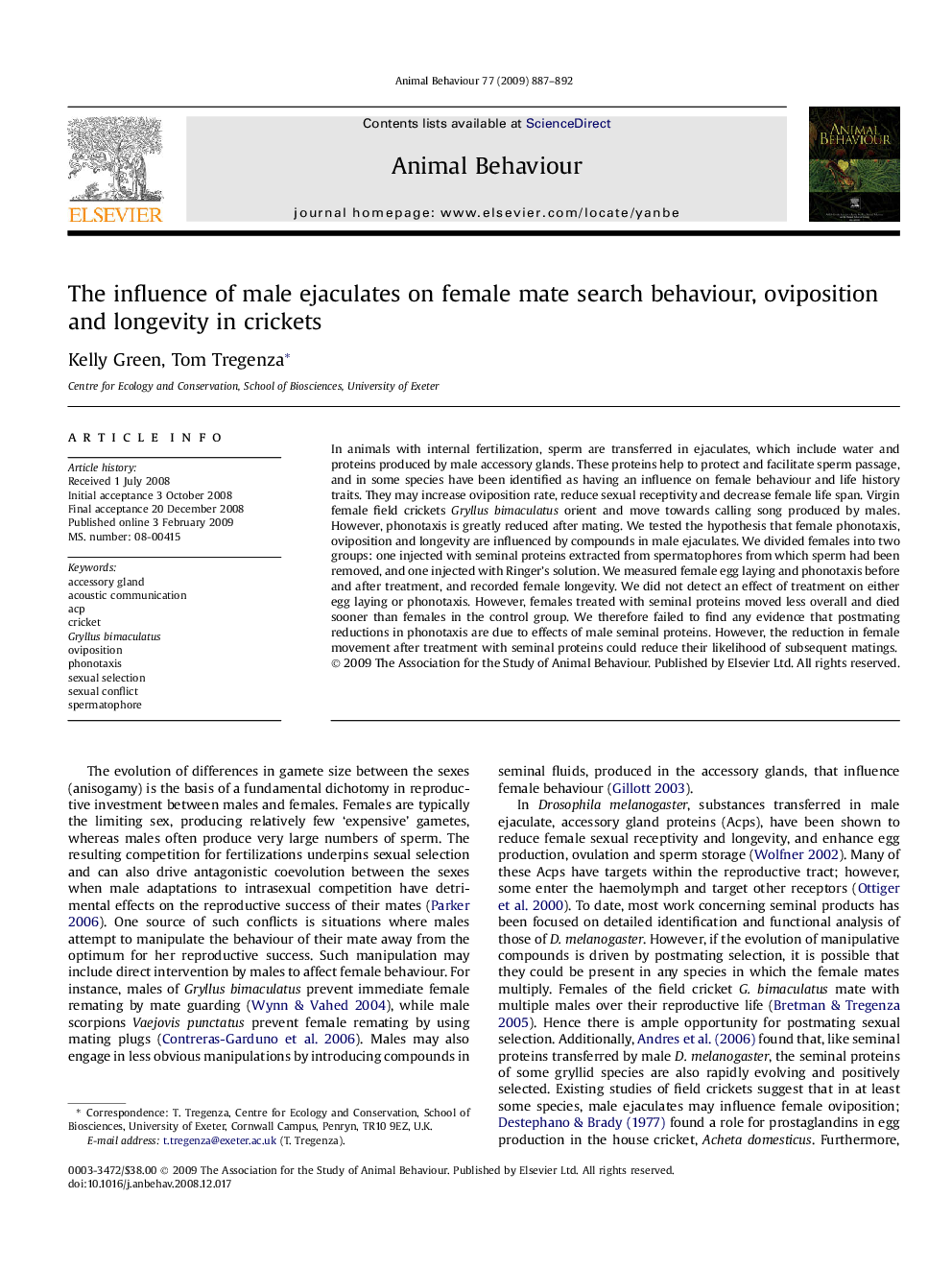| Article ID | Journal | Published Year | Pages | File Type |
|---|---|---|---|---|
| 2417829 | Animal Behaviour | 2009 | 6 Pages |
In animals with internal fertilization, sperm are transferred in ejaculates, which include water and proteins produced by male accessory glands. These proteins help to protect and facilitate sperm passage, and in some species have been identified as having an influence on female behaviour and life history traits. They may increase oviposition rate, reduce sexual receptivity and decrease female life span. Virgin female field crickets Gryllus bimaculatus orient and move towards calling song produced by males. However, phonotaxis is greatly reduced after mating. We tested the hypothesis that female phonotaxis, oviposition and longevity are influenced by compounds in male ejaculates. We divided females into two groups: one injected with seminal proteins extracted from spermatophores from which sperm had been removed, and one injected with Ringer's solution. We measured female egg laying and phonotaxis before and after treatment, and recorded female longevity. We did not detect an effect of treatment on either egg laying or phonotaxis. However, females treated with seminal proteins moved less overall and died sooner than females in the control group. We therefore failed to find any evidence that postmating reductions in phonotaxis are due to effects of male seminal proteins. However, the reduction in female movement after treatment with seminal proteins could reduce their likelihood of subsequent matings.
